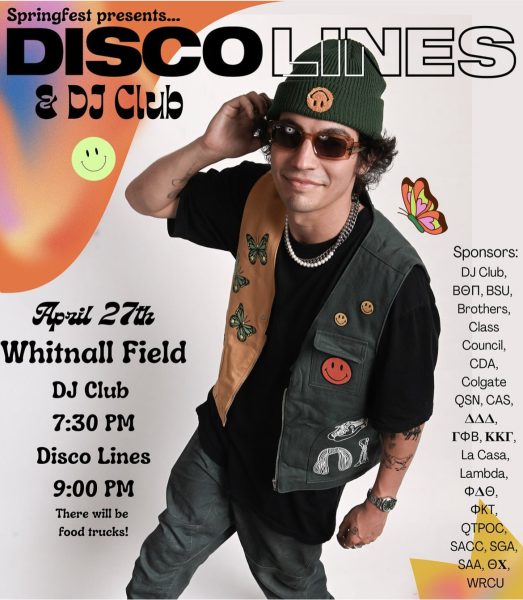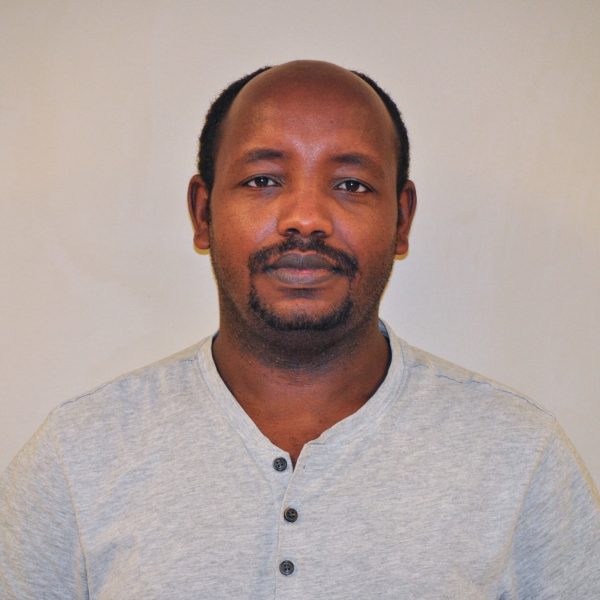Teaching Modernity Through Music
The Manhattan String Quartet is once again in residence at Colgate University this week.
As the musical component of the Core 152: The Challenge of Modernity curriculum, its music functions as a supplement to the visual and written material studied within the classroom. The quartet, consisting of violinists Eric Lewis and Calvin Wiersma, violist John Dexter and cellist Chris Finckel, consciously incorporates music that it feels will enrich students’ understanding of the rapid, and often unsettling, changes that characterize modernity.
“One of the things Core Modernity is trying to do is introduce music from the modern period in an effort to show the contrast between some of the traditional Classical music and the kind of music that was developed at about the turn of the century,” Christian A. Johnson Endeavor Chair in Liberal Studies and Core 152 Director Marilyn Thie said.
The quartet has been more than happy to participate in the education of Colgate students.
“It’s perfect for us because it was probably the most exciting time in music,” Wiersma commented. “There was so much experimentation and so many new avenues being explored. So many people wrote for string quartets, so the material we have to draw from is just fantastic.”
Each year, the quartet members and the director select a composer along with a piece of music on which to focus. This year they have chosen to return to the work of Vienna-based composer Anton Webern and his “Five Pieces for String Quartet.” These short pieces effectively demonstrate what was happening in music at the time.
“Webern’s music is like the poetry of Classical music,” Lewis said. “It’s concise but full of heightened emotions.”
Webern’s approach to music makes him unique in history.
“After Webern, classical music was never the same,” Wiersma said. “He questioned and broke all of the set rules
governing its composition.”
The quartet gave a complete performance of all five chosen pieces for the benefit of all current Modernity students at a concert last night in Colgate’s Memorial Chapel.
In addition, the Manhattan String Quartet also held small group sessions with the various Modernity sections. From Wednesday until today, Modernity students had the opportunity to sit on the stage of the Chapel and listen to the musicians perform just a few feet from them.
“What is so great about this not really being like a typical concert we perform,” Finckel said, “is that everybody sits really close so they’re right inside of what we’re doing and not only listen to it but feel it.”
The workshops offer a unique environment for both the student participants and the quartet members themselves.
“For most of the concerts we play, there’s not that much interaction with the audience,” Lewis said, “But here, we can see them and talk to them a little so there’s much more of a give and take.”
Another difference the group perceives between the college setting and a public concert hall is that students typically possess a lesser degree of knowledge of quartet music.
“Many students here have probably never been to a string quartet concert and are not aficionados,” Dexter said. “It’s our job to draw them in and interest them.”
The quartet seeks to help students broaden their musical background.
“I think that what we find is that most people usually have a preconceived notion of what classical music is and what we hope to do is broaden that view,” Wiersma said. “Our expectation and hope is that this piece would do that.”
During these class sessions, the quartet demonstrates to students that music also experienced the changes that swept across literature, art and other mediums of expression, and can propagate a political agenda. At a time when Europe’s huge empires were disintegrating into smaller nation-states, music served as an agent of national unity and identity.
“This period coincided with the rise of feelings of nationalism,” Wiersma said. “People were exploring what it meant to be Czech or Hungarian or American and this search for a national identity was reflected in the music written at the time. [For example,] by incorporating elements of folk music into pieces that followed the more traditional conventions of Classical music in Vienna, composer Bartok was able to show audiences that Hungarian music was also valuable and worthwhile.”
Although the Thursday concert was exclusively for the Challenge of Modernity students, the greater public will also be able to enjoy the internationally renowned Manhattan String Quartet tonight at 7:30 p.m. in Memorial Chapel. It will perform another concert featuring the String Quartets Nos. 5-8 of Soviet Composer Dimitri Shostakovich. The concert is free and all are welcome to attend.







